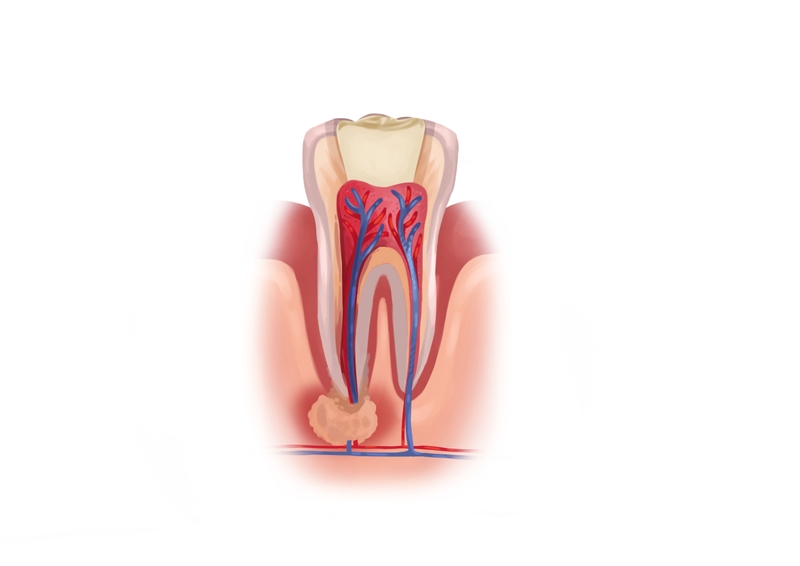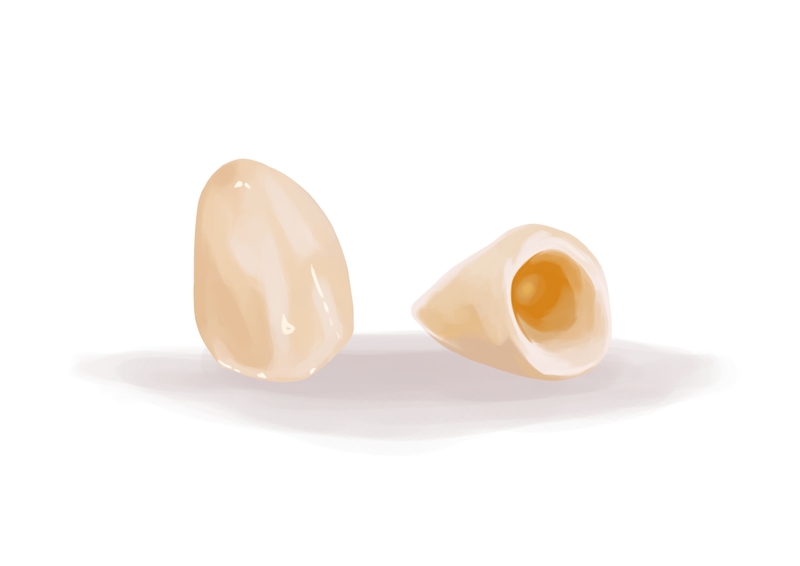- Root canal therapy, also known as RCT, is a standard treatment for severely damaged teeth.
- RCT helps remove infection from a broken tooth and prepare it for a dental filling, inlay, or crown restoration.
- RCT is a dental treatment that can save a tooth; however, it may weaken the tooth structure and potentially lead to future tooth breakage if the endodontically treated tooth is not protected by a dental crown. If performed correctly and without physical impact on the tooth, RCT has a long-lasting effect.
We are ready to help you get immediate relief. Find 24/7 urgent dental care near you with Authority Dental. It is a fast and credible service.
Are you unsure whether to use RCT to treat a broken tooth? Here's everything you need to know.
How can a root canal help a cracked or chipped tooth?
Endodontic treatment involves the removal of nerves and pulp. It also includes the process of sealing the cavity with dental fillings. The goal is to remove all pulpal tissue, which contains nerves and blood vessels. Once the pulp, or the innermost layer of a tooth, becomes infected by bacteria or affected by a crack or fracture, a root canal treatment may be indicated.
A dental crown is the most common option for restoring severe tooth cracks or excessive tooth loss. Suppose the tooth is severely decayed or has lost a significant amount of tooth structure; a crown will likely be indicated.

In some cases, if the decay has infiltrated the pulp or is very close, the dentist may recommend RCT in addition to a crown.
As Lee explains: ”Once the 'pumpkin' is hollowed out, however, it is more brittle. The tooth no longer has its internal blood supply, so it becomes less resilient over time. That is why, especially for a back molar that does all the heavy lifting, a crown is almost always the second step.”
”Think of it as a two-part mission: first, we save the tooth from infection with a root canal, and second, we give it a protective helmet in the form of a crown, so you can chew on it for years to come,” he says.
If root canal treatment is not completed but recommended, your tooth could lead to severe infection or worsening of decay.
RCT can be indicated for several reasons. We will review these below.

Picture by Authority Dental under CC 2.0 license
Anterior Teeth Indications
Anterior teeth and premolars with fractures or cracks can benefit from RCT. If there is a loss of tooth structure that can impact the stability of the crown, an RCT may be indicated.
Your dentist or endodontist will remove the nerve through a procedure known as endodontic treatment. After the RCT is completed, this will allow your provider to place a post into the cleared root canal space. The post will then help retain a core. The core will help rebuild missing tooth structure and can provide support for your crown if a post is necessary for the crown to have retention. Root canal treatment may be prophylactically indicated by your provider.
Not all front teeth need crowns. If a tooth needs root canal treatment but has little loss of tooth structure, a crown may not be necessary. If there is a significant loss of tooth structure, your dentist will inform you if a crown is necessary in addition to the root canal treatment.

Picture by Authority Dental under CC 2.0 license
Posterior Teeth Indications
Depending on the fractured tooth structure or amount of decay, RCT may be necessary for your posterior tooth.
Injuries to a healthy tooth structure can expose nerves. Those are located beneath the layers of tissue. This exposure can oftentimes cause a variety of painful sensations.
If there is nerve or pulpal involvement, your dentist will recommend that you have an RCT completed before placement of a full coverage crown. Most posterior teeth will need to be crowned after RCT. This is due to the function and role of the posterior teeth in chewing and mastication. Posterior teeth need to be able to accommodate an increased force load.
Can a tooth crack again after root canal treatment?
A tooth that has undergone root canal treatment may break again for many reasons.
Endodontic treatment is typically successful; however, complications can occur, which may lower the success rate for the affected tooth.
Severe decay is another reason for a procedure's unsuccessful outcome. The best approach is to preserve a natural tooth whenever possible. Still, for a severely compromised tooth, RCT can only provide short-term results.
Another common reason for cracks is a weakened structure. Nerve removal cuts off the blood supply to the nerve. With time, the structure becomes even weaker. Even the best dental fillings are never the same as the natural ones. The resilience and strength of the natural tooth are higher.
FAQ
Is a root canal the only treatment option for a cracked tooth?
No, you also have other treatment options available. Cosmetic procedures are more common for minor and painless damage. You can use it if there is no damage to the pulp. Polishing and countering are such procedures. Another viable option for treating root fractures is tooth extraction. Your dentist may still prefer RCT, but its success depends on the intensity of the tooth damage.
How to tell if a tooth is cracked under a dental crown?
A tooth with a dental crown that has a fractured tooth is likely to experience increased sensitivity. It can develop into severe pain. You may also experience swelling of the surrounding tissue. It is usually quite challenging to diagnose cracks under a dental crown. It is best to see a dentist who can take an X-ray of your tooth to identify the damage.
How to deal with cracked tooth root pain?
A standard solution for painful sensations is over-the-counter ibuprofen-based medications. Best along with ice pack compresses. Still, you should consult your doctor as soon as possible to explore dental treatment options. Trying to mask the pain with painkillers will put your oral health in jeopardy.
Is a cracked root canal an emergency?
It is an emergent situation that requires an immediate dental visit. It may still be a treatable condition. You may undergo RCT and dental rehabilitation again. Otherwise, your only option is extraction. After the procedure, you can choose from a dental implant or a bridge.
Harry Lee, DMD
No two words in dentistry cause more anxiety than "root canal." In my experience, patients often associate the procedure with extreme pain, but I need to be precise and clear about this: the root canal is not the source of pain; it is the solution to it. The excruciating pain comes from the infected and dying nerve inside the tooth. The root canal procedure is what finally brings relief.